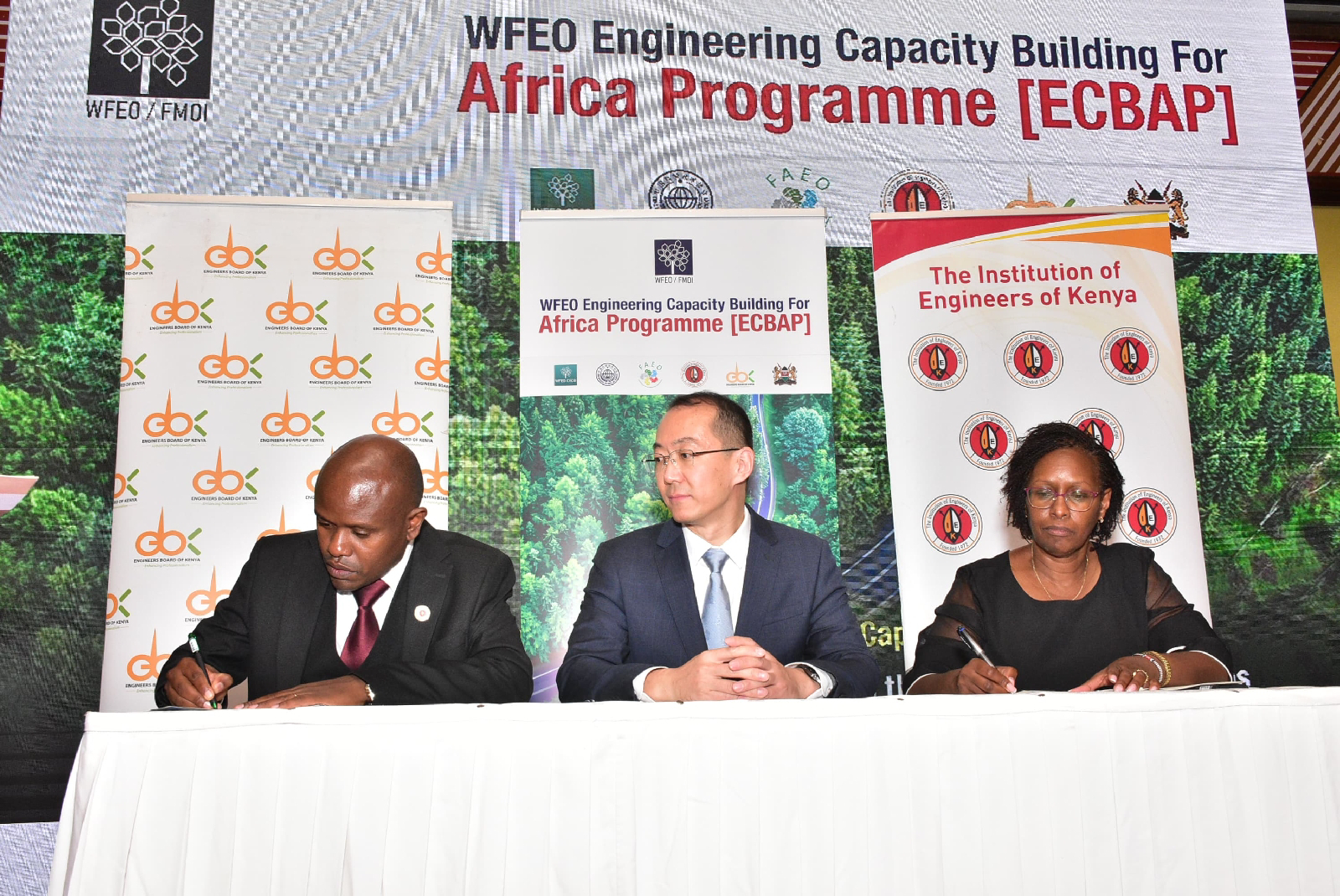IEK conducted a training on Artificial Intelligence for Engineers which covered key areas with participating engineers from Water, Energy, Agriculture and Infrastructure placing IEK as one of the training centers for the WFEO-ECBAP initiative and the training in AI.
Kenya’s growth has been largely driven by Agriculture with 21.8% contribution to GDP. Manufacturing contributes 7.6% to GDP while construction contributes 6.6%. Transport and Storage contributes 13.6% while Information and communication contributes 2.2%.
Engineers are at the forefront in all these sectors. However, the world is fast changing due to changing technology and AI, Internet of things are changing the way things are done therefore very timely of the UN to declare 2024-2033 the international decade for science and technology for sustainable development.
Speaking during the launch at a Nairobi hotel IEK President Shammah kiteme lauded their commitment to support the initiative and scale up this training from the experience so that it will be rolled out successfully across Africa. Other courses IEK offers include emerging areas like Quantum Engineering, Nanotechnology, Renewable Energy, Circular Economy, Autonomous systems, Bioinformatics, Climate Resilient Designs among others. This is in addition to the more discipline focused areas of training including lifelong learning programs covering soft skills and life skills for engineers. With our robust training program which seeks to keep Engineers abreast with the best skills for their work and latest technology, IEK is pleased to partner with WFEO-ECBAP program to train all Engineers in Africa with the efforts to realise the 100,000 Engineers to be trained in the next 10 years.
WFEO in partnership with CAST entered into this framework for Engineering Capacity Building for Africa Program. This program will be a game changer. Africa remains a virgin continent and it requires local solutions to the issues the continent faces and so this program for capacity building for African Engineers is vital. It will enable them to lead the way in providing local solutions. Engineers are key in ending poverty which is (goal 1), they lead in Sustainable Agriculture which is (goal 2), innovations in healthcare and bioinformatics (goal 3), Clean Water and sanitation (goal 6) and affordable, sustainable and modern energy for all (goal 7). Resilient infrastructure and sustainable industrialization (goal 9) and Engineers have a central role to play in all these. Engineers have a critical role to play in building sustainable cities and communities (goal 11) and climate action (goal 13) as well as life under water (goal 14). Indeed, sustainability on land is achievable through work of engineers and (goal 15).
The program aims to train over 100,000 Engineers in Africa for capacity building in Artificial Intelligence which will contribute to innovation in the Energy, Agriculture and Food Security, Water and infrastructure for sustainability.
The event culminated in signing of an MoU with Chinese Society of Engineers,A move that will enable closer partnership with Chinese Engineers in knowledge sharing and professional development of each member. This is indeed a fulfilment of goal 17 on partnerships for sustainable development with China’s advanced development.





